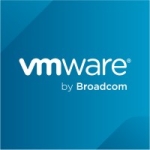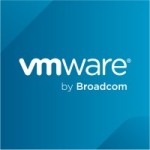What is our primary use case?
We have a client using Azure Exchange for their organization, including emails and Outlook. This is the most recent use case.
And another client has a lot of cloud migrations at the moment. Some are from the Azure Stack to the Oracle Cloud, and others from the Alibaba Cloud to the Azure Stack. There are different projects ongoing at the moment, which are mostly targeted over the migration of the cloud to and from Azure and onwards.
How has it helped my organization?
The benefit for any company using Azure Stack or any of the cloud, even AWS, is that everything is managed by the service provider - in this case, Microsoft.
Azure, normally it's not an on-prem; it's the Microsoft cloud mostly based in California or in the Middle East, depending on the different geolocations of the cloud.
Microsoft has one data center in the Middle East, and most of the time, most of the local services for the Azure Stack are hosted from this location. Otherwise, it's mostly coming from Europe.
What is most valuable?
There are lots of great features.
The Office 365 migration from old accounts to new accounts is great. It is helpful for organizations, actually. If a user wants to upgrade Office 365 from any of the packages, there is no disruption happening during migration, and the data is kept safe. There's no loss of data. Previously, data loss was always a concern.
Basically, the most beneficial feature I found in Azure is that any migration ensures data is always safe and secure.
It's easy to set up.
What needs improvement?
Improvement is already happening based on the strategy of Microsoft.
Normally, in many countries, especially in the Middle East, there are government regulations for information technology itself. If government organizations want to host the cloud, they cannot take it from Microsoft directly; they must go through the local internet service providers, ISPs, or cloud solution providers locally. They should have a local data center in the Middle East, and the data should not move out of the Middle East. This is one of the restrictions we face.
Having said that, Microsoft is working with the governments in the Middle East.
At the end of the day, it's all about the composition between the cloud service provider giants, including Microsoft. There is a growing market for Alibaba Cloud in the Middle East. It's growing more popular compared to Azure. The reason is that the governments are more focused on Chinese technology rather than Microsoft in certain areas.
For how long have I used the solution?
I've used the solution for the past five years.
What do I think about the stability of the solution?
The solution is extremely stable.
It's extremely stable unless and until someone from the operations team messes with it.
In a heavy-load cloud environment, I'd rate the solution nine out of ten.
Microsoft data centers are tier-four data centers. Tier four is a certification from the Uptime Institute, which makes sure that the data center standards are being met in regard to the end customer service availability. Tier four has the highest rating, which is the 99.49% of service availability. This means that if anything goes wrong at the data center in the Microsoft infrastructure, they have a failover backup so that the customer wouldn't even feel that the service is down and there would be not any interruption for the end customer.
What do I think about the scalability of the solution?
The solution is extremely scalable. The cloud is based on the concept of scalability. If the cloud is not scalable, there's no need even to call it a cloud.
I'd rate the solution nine out of ten in terms of scalability.
On one of our deployments, the number of users is between 300 and 500. Our deployments vary in size. That includes the Azure Exchange only. There are other parts running on the Azure Stack.
The solution is suitable for all sizes of businesses. If they are looking for a solution that is flexible and scalable, this is a good option. It would be good, for example, for a logistics company where the Stack is mission-critical.
If something goes down, switching operations happen in milliseconds or microseconds, maybe. Therefore, even if the virtual machine is down, the end user, the logistics service, will not be interrupted.
How are customer service and support?
Technical support is good. Normally, whatever the Azure Stack case is, we open up a ticket. It's a system in Microsoft. The call agent will open a ticket for specific troubleshooting, and it'll remain open until the issue is resolved. They have an SLA for that specific reason.
The technical support rating on the consumer level with Microsoft is very generic, as per my experience. Normally they keep on looping stuff instead of resolving the issues. For the business customer, it's different since it's a business; it's a matter of money. In that regard, their service is quite good, actually.
However, on the consumer side, when I worked with Outlook or Azure, there was an Azure resource for which the issue came up. I checked with my operations team and they said the issue was from Microsoft and we had to open a ticket with them. I opened a ticket, and it took one or two days, and it kept on looping, and eventually, we solved the problem by ourselves.
Which solution did I use previously and why did I switch?
There's a cloud called Virtual Stream, which was acquired by Dell EMC. Dell EMC was our partner.
We had a Virtual Stream Cloud for mobile that we were providing to our business customers in the different big companies. In the end, we sold the cloud. It was a bit complex compared to other cloud technologies. That said, it was quite reliable, actually.
How was the initial setup?
The initial setup depends on the situation. Typically, it is simple. Suppose you're buying and provisioning Azure Cloud sources from the Microsoft website and have the online payment through Mastercard. In that case, you can build up your own customized cloud through the Microsoft website, and they will provision your cloud for you, and it'll be ready within a few minutes or hours, depending on the requirement.
In some cases, it depends on the customer's solution and what our customer is looking for. Sometimes, there are some compatibility feature sets from other service providers that have to be deployed in the Azure Cloud, and how much time Azure Cloud would take to complete its provisioning.
It is simple if you need one virtual machine or block storage from Azure, and you need to have the Windows operating system and the RAM or memory you require. It's one click away and done within a few seconds.
However, if you are building up a solution for some product that requires, for example, 300 virtual machines and there are a lot of resources that involve some third-party SaaS, this might take some time.
Overall, it is straightforward, and I'd rate the implementation process eight out of ten. With cloud service providers, many things are automated, and everything is happening virtually. That relieves a lot of the complexity. Anyone who understands cloud technology should have very many issues.
We have ten to 15 people who can handle deployment and maintenance tasks.
What about the implementation team?
We have a team that deploys the solution. Sometimes I'm enrolled with the team, sometimes, the team handles things alone. It's an operation team for the customer, and we usually provide them with managed services for their cloud, where we do all the technical operations on the cloud by ourselves. We implement it according to the client's authorization.
What's my experience with pricing, setup cost, and licensing?
The licensing model is different in different regions. For the Middle East, it's different than it is for China, for example. Once you go to the Azure website and you want to have the Azure Stack resources provisioned, they let you look at the different regions, and the pricing for different resources, for the block storage, computing, virtual machines, memory, et cetera. All the pricing scenario is in US dollars since they're selling it internationally.
While it's different in different regions, it's quite affordable compared to other products.
Similar competitors, like Alibaba and Amazon, have a similar pricing strategy. They also offer regional-based pricing once you are assuring the cloud resources on their platforms. It's flexible pricing for Azure. That said, in most cases, I see that Azure is a bit high compared to Alibaba or Amazon.
Most small and medium-sized customers are budget-conscious. If they want to have Azure, they might think, "Okay, it's better to move to Amazon, or to Alibaba, or to some other cloud since the price difference is quite high when looking at Azure Stack."
What other advice do I have?
We have a partnership with Microsoft.
We are likely using the latest version of the solution. Typically, we get scheduled updates from the cloud.
As far as my experience is concerned, Azure is a very flexible and very stable solution. If you want quality and stability, you should move to the Azure Stack.
Of course, everything depends on the customer's requirements and what exactly he is looking for in the Azure Stack. Not all customers will use the full Azure Stack. Most likely, they will have third-party applications based on their current infrastructure, which they will want to deploy in the Azure Stack.
I'd rate the solution eight out of ten overall. Amazon has more market share than Azure. Alibaba is beginning to challenge both.
Disclosure: My company has a business relationship with this vendor other than being a customer. Partner

















